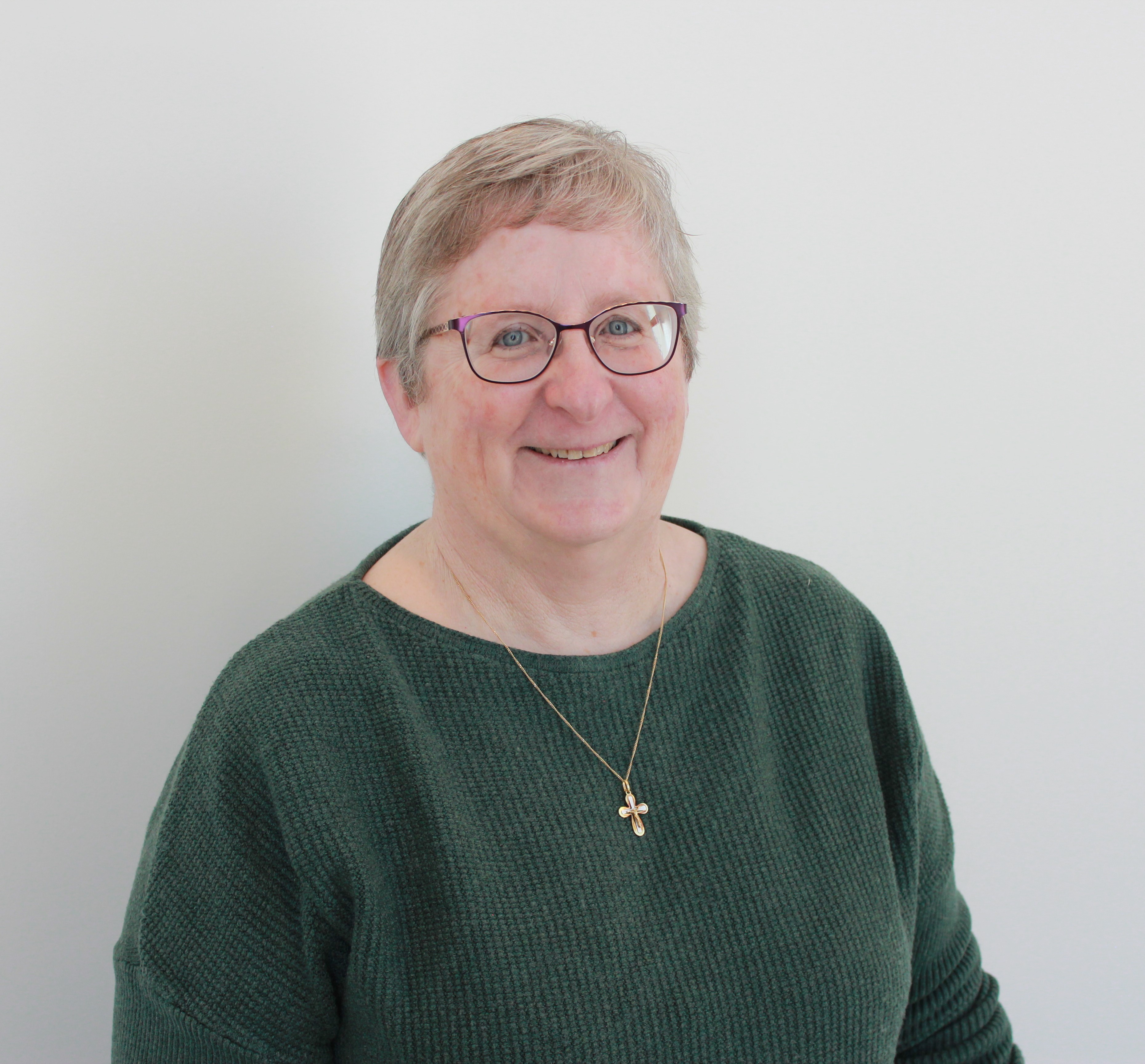
Milly Ryan-Harshman
PhD
Associate Teaching Professor
Faculty of Health Sciences
Contact information
Shawenjigewining Hall
- Room 459
North Oshawa
2000 Simcoe Street North
Oshawa, ON L1G 0C5
905.721.8668 ext. 5334
Background and Interests
- End-of-Life Care
- Curriculum
- Simulation Education
- Generative AI Tools
- Food and Technology
Education
- M.A., Bioethics and Health Policy Loyola University Chicago, USA 2015
- PhD, Human Nutrition University of North Carolina, USA 1987
- M.S. Human Nutrition Mississippi State University, USA 1982
- B.A. Journalism University of Louisiana, USA 1978
Research and expertise
-
Biography
Dr. Milly Ryan-Harshman has an undergraduate degree in journalism, two advanced degrees in human nutrition, and an M.A. degree in biomedical ethics and health policy with a Catholic concentration from Loyola University Chicago. Her capstone project, a narrative about her participation in her father’s end-of-life care decision-making, was published in Perspectives in Biology and Medicine in 2016.
Milly currently teaches ethics, interpersonal and interprofessional communications, and public health in the Faculty of Health Sciences (FHS) at Ontario Tech. Milly also designed the original academic writing course in FHS and continues to be involved in writing across the curriculum. While there have been several challenges associated with teaching academic writing, the release of ChatGPT, a generative AI tool, has encouraged Milly and her colleagues to rethink writing at university.
For three years, Milly was actively involved in Project Lord Ridgeback, an emergency response simulation, an activity held in cooperation with the emergency response program leaders at Durham College. Her responsibilities were largely administrative, and mainly involved recruiting student nursing volunteers and actual practicing physicians to lead the student nurses through clinical care experienced in an emergency department.
Milly is a former public health nutritionist, having worked at the Durham Region Health Department for seven years. She has written for both public and scientific audiences and is both an accomplished writer and editor. As part of knowledge dissemination, she has been an invited speaker to the International Congress of Dietetics (Manila and Chicago), The Nutrition Society (London), and the International Technology, Education, and Development conference in Valencia, Spain.
Currently, Milly is the BHSc Program Director in FHS. Her chosen signature piece associated with her role as program director is curriculum, and she has been actively involved in the process to improve the health sciences curriculum, particularly in the public health specialization.
-
Courses taught
- Academic Writing
- Interpersonal and Interprofessional Communications (Oral)
- Health Care Ethics
- Public Health
-
Publications
Ryan-Harshman, M. (2016). Refusing Technology, Accepting Death: My Father’s Story. Perspect Biol Med; 59(2):198-205. Project MUSE, doi:10.1353/pbm.2017.0004
Vogel, E., DeBusk, R., Ryan-Harshman, M. (2009). Advancing knowledge translation in nutritional genomics by addressing knowledge, skills, and confidence gaps of registered dietitians. In: Nutrition and Genomics: Issues of Ethics, Law, Regulation and Communication (D Castle, NM Ries, Eds.). Elsevier: New York, 2009.
Ryan-Harshman, M., Aldoori, W. (2006). Food for thought: New Dietary Reference Intakes for macronutrients and fibre. Can Family Physician; 52:177-9.
Ryan-Harshman, M., Aldoori, W. (2005). Food for thought: Health benefits of selected vitamins. Can Family Physician; 51:965-8.
Ryan-Harshman, M., Aldoori, W. (2005). Food for thought: Health benefits of selected minerals. Can Family Physician; 51:673-5.
Simonson, R., Whiting, S., Berenbaum, S., Ryan-Harshman, M. (2001) Food biotechnology: Dietitians’ resource needs as determined by selected Canadian key informants. Can J Diet Pract Res 2001; 62:89-94.
Ryan-Harshman, M., Leiter, L.A., Anderson, G.H. (1987). Phenylalanine and aspartame fail to alter feeding behavior, mood and arousal in men. Physiol Behav; 39:247-53.
-
Grants
Teaching and Learning Centre (2), Dean’s Discretionary Fund (1)